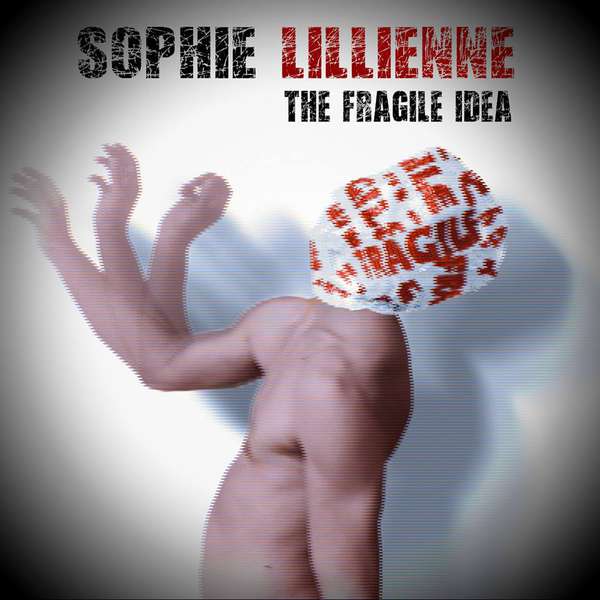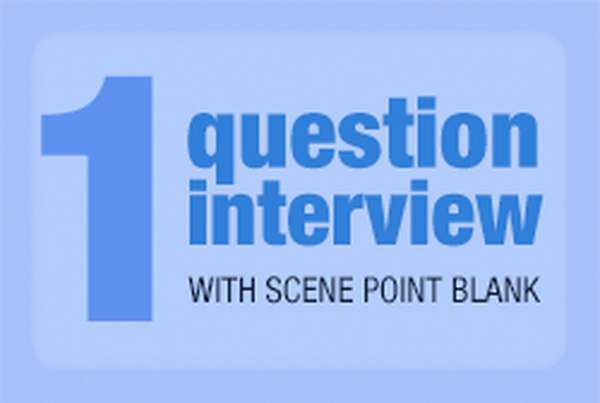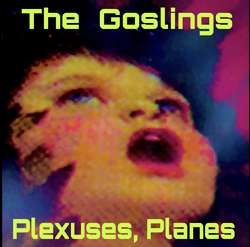Artistically satisfying and incredibly eclectic, 2015’s The Fragile Idea from Italian electronic artist Sophie Lillienne seems designed to lull a listener into a somnambulistic state. Typically lumped into the trip hop genre, Sophie Lillienne’s music is full of unconventional, quietly haunting melodies, scratchy rhythms, and dramatic vocal performances. I would almost say that the dark and gloomy Fragile Idea is similar in tone to something like the Deftones’ White Pony, but instead of working with more rock-oriented ingredients, it trades in grimy electronic sounds. However one categorizes it, there’s no denying the impressive work that Vezzo (the creative force behind Sophie Lillienne) has produced here: at 67 minutes in length (83 with four decent but completely unnecessary bonus tracks tacked on), The Fragile Idea might be daunting for some listeners, but there’s more than enough here to sustain interest. If nothing else, Sophie Lillienne’s album proves that indeed electronic music can express emotion and have a soul; in terms of creating a singular atmosphere, I’d compare this favorably to something like The Chromatics’ outstanding Kill For Love.
A distant vocal sounding in echo over a gurgling bass marks the start of album opener “Brand New Star,” the voice cutting through the near-silence much like a lighthouse beacon piercing through a fog bank. By the time a hissing rhythm set up the main body of the song, the lonely vocals have been replaced by spooky digitally-altered voices that seem to shriek in a manner suggestive of a humanoid robot in the process of malfunctioning. This downright weird first track is followed up by one in “No Angels in Bristol” that is relatively sparse in terms of its instrumentation but somewhat more conventional. A crisp, almost industrial beat and thumping, throbbing bass push things forward, with another haunting vocal line calling out into a not-so inviting ambiance. These vocals wind up adding a human warmth to an otherwise mechanical and uninviting track, and this trend continues for much of the rest of the album.
A prominent dubstep wobble is in full effect on the dirge-like “Erase and Rewind,” a piece that ups the unsettling vibe of the album with subtle accents of yearning guitar, intrusions of droning ‘80s synthesizers, and repeating “ah-ah-ah” backing vocals but the calming fourth track “Oracle” changes things up significantly. Nearly uplifting in context, this one has a more ponderous sound created through the use of burpy synths and hollow, heavily-manipulated voice parts. A small-scale dance section driven by tambo and bloopy keyboard pops up around the halfway point, and I love the hazy background vocals which hint at the level of precision that went into the production of the track (and the album as a whole). “Fragile” takes things back into a much darker realm and may be the closest thing to a witch house single I’ve heard in quite a while. A very dramatic main vocal with disturbing wails coming through underneath give this song plenty of emotional impact, but the distressing mood is alleviated somewhat by the glowing and bright “Esteem.” Built around gentle piano accompanied by rich strings and a smooth guitar, the final touch on this new-agey track is a shrieking high-pitched melody; “Esteem” certainly confirms that Sophie Lillienne is capable of doing more than just the spooky grime electro thing.
The urgent and mysterious “Lights in the Town” adds some John Carpenter-like synth music before “Immigrants,” a song that I’d previously heard on the EP of the same name, delivers one of the album’s more straight-forward (and frankly, kind of forgettable) tracks. A sense of torment and struggle hinted at earlier in the album really comes through on “Inner World,” which finds singer/musician Vezzo asking “should I hurt myself / should I trust again?” over a discordant musical accompaniment. Despite its name, “Airy” doesn’t quite provide any reassurance after the altogether disturbing previous track: full of ominous and strange sounds, the piece builds to a loud climax of cracking rhythm and grinding, scratchy noise. Astral keyboard signals the start of “Indie Girl,” easily one of the more obviously pleasant tracks on The Fragile Idea’s back half. Again, there’s a nice sense of emotionality, most of which is due to the especially desperate vocals which soar over deliberate, sometimes glitchy rhythms and droning organ chords. The title of “Radio Requiem” seems appropriate for what the song is after. It’s a somber instrumental that works through several distinct sections before giving way to another bravura lead vocal that features in penultimate track “Lonely Heart.” The last "Fragile Idea" presented here is “Wondering” that finds breathy vocals continuing over an unnerving found sound collage of playful children chattering. Could one expect anything less from this strange sonic journey than a definitively weird finale?
As I mentioned, The Fragile Idea also includes four bonus tracks. None of these are especially awful, but I’m glad they weren’t worked into the album proper – it’s plenty long enough as it is, but more importantly has a great sense of flow to it which I think would have been disrupted had the bonus tracks been included.
I’ve often said that making longer albums is incredibly difficult: I’m willing to sit through even albums that I don’t particularly like provided they don’t waste a significant amount of my time. For me to get behind an album that’s an hour or more long, it has to be solid throughout the entirety of that time and thankfully, Sophie Lillienne’s is. Since this album is more about creating atmosphere than unleashing catchy singles, it might present a challenge for some listeners, making it difficult for them to enjoy. Even so, it’s hard to knock this album’s sense of vision and the amount of talent that went into its construction. Every track here is masterfully crafted, and there are some really neat elements buried in the mix. While it seems that there’s a new “breakthrough” electronic artist every other week, I’d have no problem calling Sophie Lillienne one of my favorite musical discoveries of the past few years. This group doesn’t make EDM and seems to have no intention of attracting that sort of crowd, but I’d be shocked if many of this year’s electronic albums surpass The Fragile Idea in terms of overall quality.






